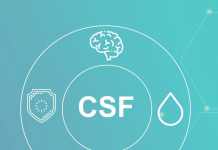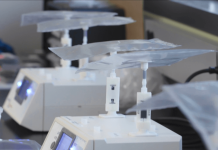The US Food and Drug Administration (FDA) has granted clearance to two of Avicenna.AI’s tools that use AI to assist in pulmonary embolism and stroke assessment.
The French medical imaging AI company has developed a host of tools that integrate with computed tomography (CT) scans to automatically detect, prioritise and assess life-threatening conditions.
Related: FDA clears redesigned kidney stone treatment tech from Calyxo
The two FDA clearances were for CINA-iPE and CINA-ASPECTS for pulmonary embolism detection and stroke severity assessment respectively.
CINA-iPE is designed to identify lung blood clots during routine CT scans of other parts of the body including the abdomen and pelvis. So-called ‘incidental diagnoses’ of pulmonary embolisms are common in routine CT scans of the chest, but Avicenna.AI says only a quarter of emboli are reported during initial interpretation.
The company already has its FDA-cleared CINA-PE algorithm, used for non-incidental findings of the disease.
Avicenna.AI validated its algorithm on 381 CT scans – performed on patients not specifically for pulmonary embolism evaluation – and 39 different scanner models.
CINA-ASPECTS automatically processes non-contrast CT scans of the brain and produces a score detailing stroke severity. The tool produces a heat map, infarcted regions, and correct images from tilt. Avicenna.AI validated the algorithm on 200 scans and 27 different scanner models.
Avicenna.AI already has FDA-cleared, AI-powered CT scan tools that help detect intracranial haemorrhage, aortic dissection, and large vessel occlusion.
Medical imaging is a major driver of AI’s growth in healthcare – a 2023 report by GlobalData predicts that global revenue for AI platforms across healthcare will reach $18.8bn by 2027.
However, some in the industry have called for more solid digital foundations in healthcare systems if AI’s implementation is to succeed in the long term.
Philips and GE HealthCare are big players in the CT space and have both invested in designing AI algorithms of their own. In May 2023, Philips launched an AI-driven CT system that includes image-reconstruction and workflow-enhancing features. In the same month, GE HealthCare received a $30m order for its own line of AI-powered CT scanners.
Siemens and GE HealthCare are the leading forces in the global CT system market, holding a share of 33.5% and 24.2% respectively, according to a report by GlobalData.




